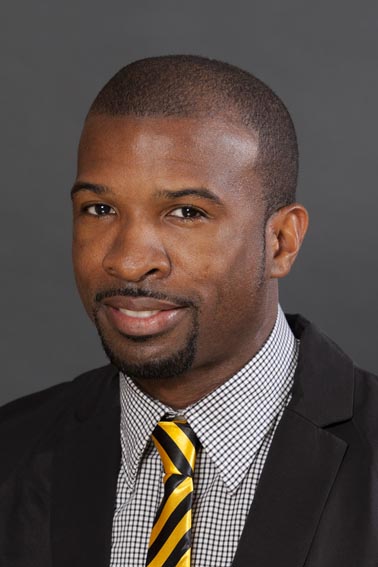Dr. Scott explores experience of black males in special education
Spotlight on SOE faculty research

The amount of knowledge being generated by VCU School of Education faculty in published research goes beyond merely enhancing the school’s reputation – it is helping to shape the future of education itself. One recent example of this is the study below, co-authored by Dr. LaRon Scott, associate professor in the Department of Counseling and Special Education, which looks at strategies for recruiting and retaining black male special education teachers. Dr. Scott also served as a co-editor for the special edition issue of Remedial and Special Education, in which this research article appears.
Summary
Dr. LaRon Scott and his colleague Dr. Quentin Alexander of Longwood University explored the experiences of Black males surrounding their recruitment and retention in special education teacher-preparation programs (SETPPs) and during their teaching careers in special education.
In the United States, the racial gap in the teaching workforce, in addition to the racial achievement gap for students, remains noteworthy and interconnected, as Black teachers are more likely to be familiar with the cultural needs of Black students. The authors noted several reasons Black males tend to avoid careers in special education: Black boys with education disabilities are often stereotyped as unteachable, special education is a high stress career, teacher licensure requires overcoming many challenges. Dr. Scott and Dr. Alexander interviewed 18 Black men with varying years of experience and at different points in their teaching careers to better understand the factors that attract and retain Black males into SETPPs.
The authors found a few important themes from their study.
- First, participants’ motivations for becoming special educators were rooted in their interest in reversing cultural stigma associated with special education and disability. Participants discussed how Black students with disabilities, particularly boys, experience academic and social injustices within their schools and communities, leading to poor outcomes in both.
- Second, participants were drawn to SETPPs that provided tuition support, flexible pathways to a degree or licensure, and that could potentially match them with mentors from diverse backgrounds. Finally, in terms of recruitment and retention, participants mentioned that a strong support system, competitive salary, advancement opportunities, curriculum that offers more diversity, and efforts by school systems to recruit teachers from local communities were all important factors in their decisions to become special educators.
The study found that cultural identity can affect Black men and act as a positive construct for recruitment when utilized appropriately. Through efforts that focus on the emotional aspects of Black males who are considering careers in special education, in addition to providing channels for advancement, Dr. Scott and Dr. Alexander believe there could be an increase in recruitment and retention of Black men as special educators.
Citation: